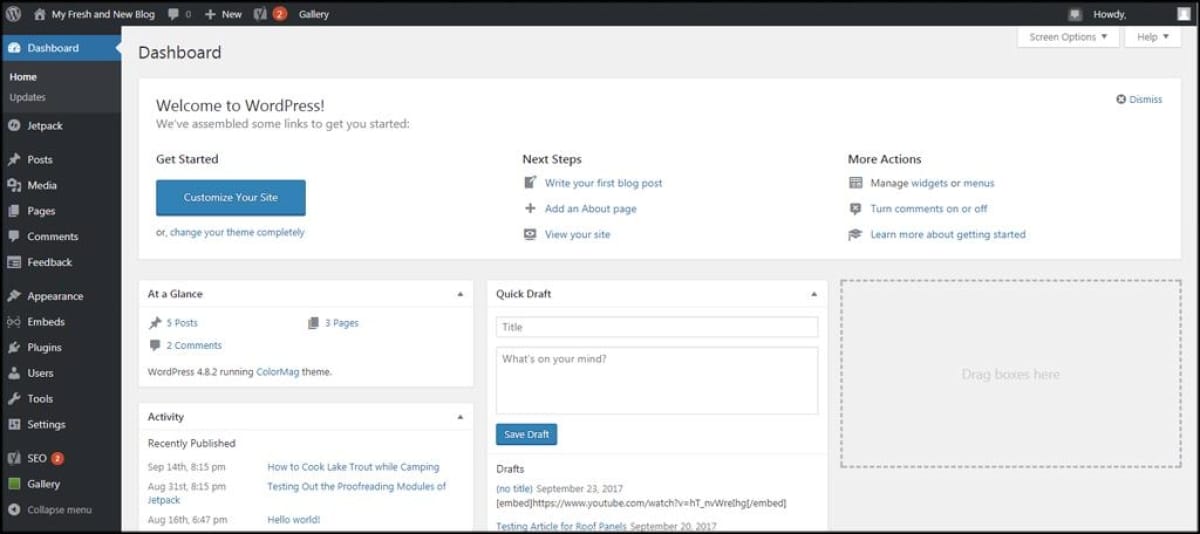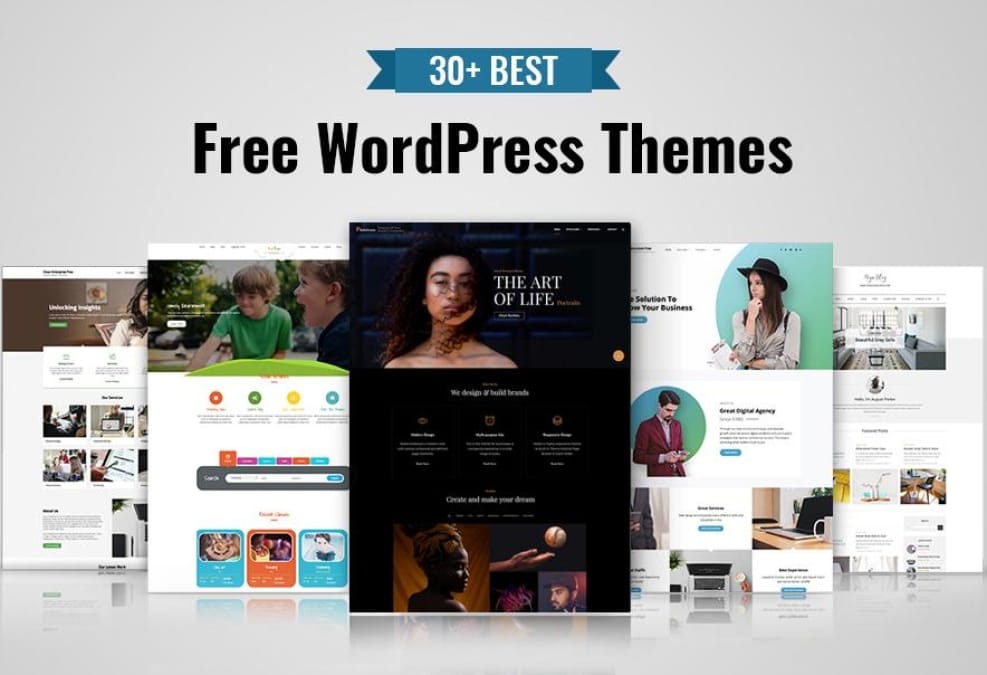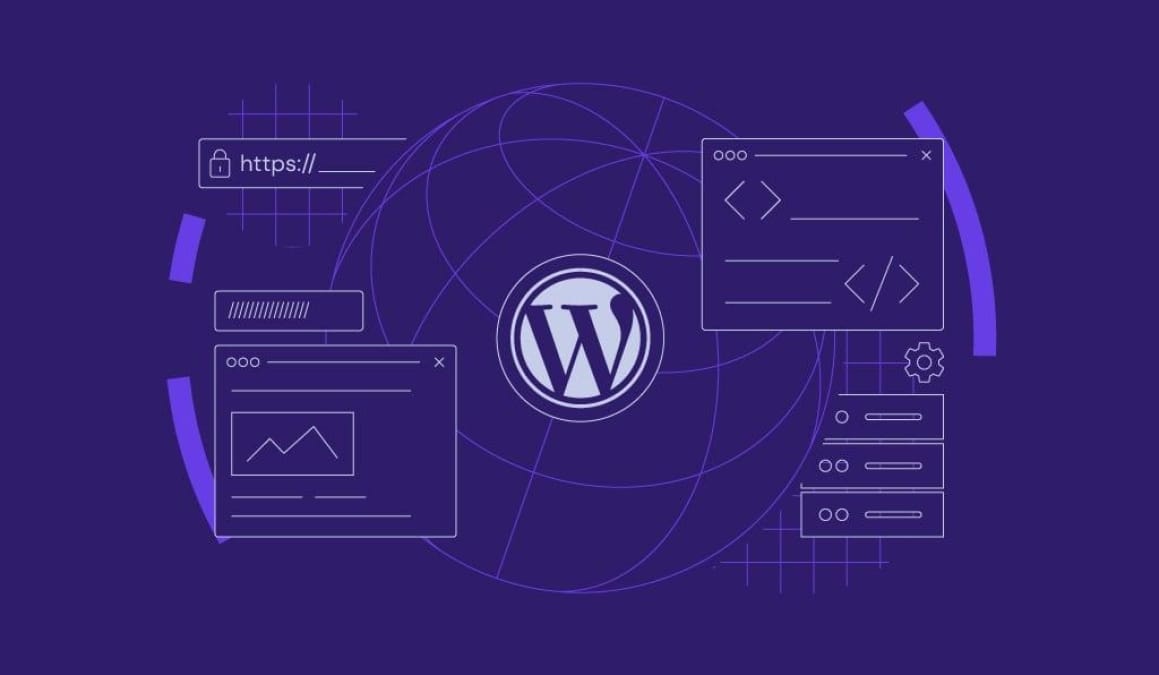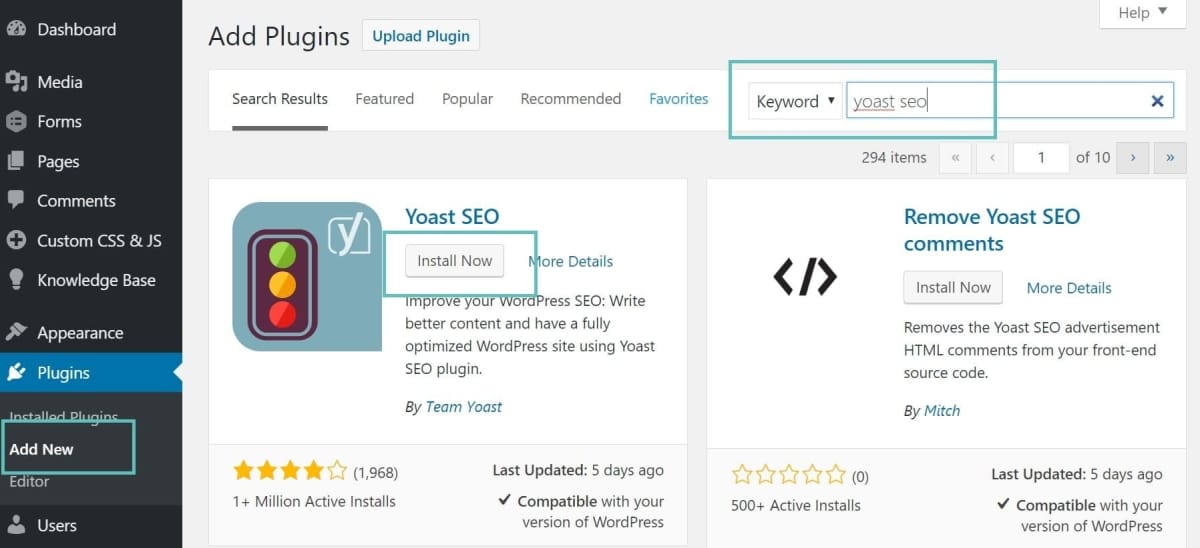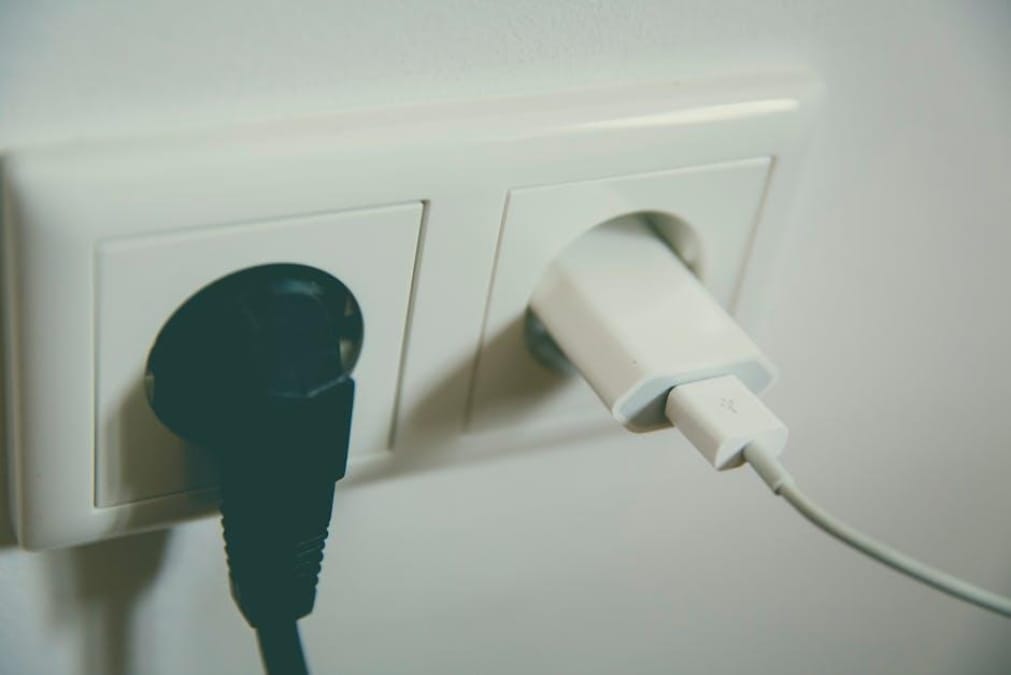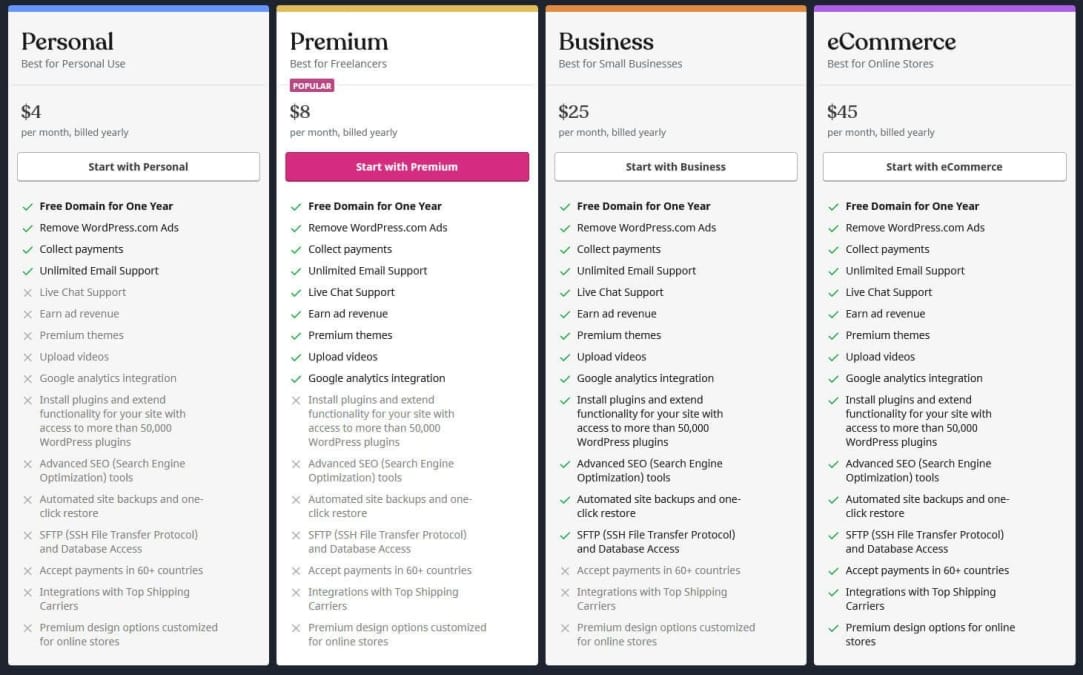When it comes to building a website, WordPress is frequently enough the go-to choice for many folks. It’s popular, user-amiable, and packed with features that seem to meet just about everyone’s needs.But here’s the thing: while it works for a lot of people, it might not be the perfect fit for you.Maybe you’re looking for something simpler, or perhaps you need more control over yoru site than wordpress can offer. In this article, we’ll dive into some reasons why WordPress might not be your best bet. So, whether you’re a beginner just starting out or a seasoned pro rethinking your options, let’s take a closer look at some alternatives that might just suit you better.
Table of Contents
- is WordPress Too Complicated for Your Needs
- Hidden costs That Can Catch You Off Guard
- The trouble with Updates and Maintenance
- Limited Customization Could Be a Dealbreaker
- Weighing Alternatives: What You Might Consider Instead
- Q&A
- Closing Remarks

Is WordPress Too Complicated for Your Needs
When you first dive into WordPress, it can feel like you’re trying to read a foreign language. Sure, it offers a ton of features, but if you’re just looking to set up a simple blog or website, it can be downright overwhelming. You might find yourself spending more time figuring out how to navigate the dashboard than actually creating content. If you’re not tech-savvy, that steep learning curve might make you second-guess your choice.
There are plenty of alternatives out there that are as easy as pie. You can check out platforms like Wix or squarespace if you want something straightforward. These options give you drag-and-drop tools that allow you to whip up a website in no time, without feeling like you need a degree in web design. And the best part? You don’t have to spend ages learning the ins and outs of themes, plugins, or coding.
Let’s break it down. If you’re looking for something simple, here’s what to consider:
| Platform | Ease of Use | Customization | Cost |
|---|---|---|---|
| WordPress | Moderate | High | Varied |
| Wix | Easy | Moderate | Fixed Plans |
| Squarespace | Easy | Moderate | Fixed Plans |
Ultimately, it all boils down to what you want. If you’re after a simple online presence to share your thoughts or showcase your work, making the jump into WordPress might not be worth the hassle. Sometiems, simpler is better. Why not spend your time creating rather than troubleshooting? Ultimately, the tools you use should help your ideas shine, not stress you out!

Hidden Costs That Can Catch You Off Guard
When you’re diving into the world of WordPress, it’s easy to get swept up in the initial excitement. You might see the free downloads and think you’ve hit the jackpot. But hold your horses! there are hidden fees that can sneak up on you. Here are some that can realy add up:
- hosting Costs: Sure, there are free options, but if your site starts to grow, you might need to shell out for a better hosting plan.
- Premium Themes and plugins: free themes are great, but many come with limitations. You might find yourself wanting to upgrade to a premium one, and that can cost you.
- Progress Costs: Not everyone’s a tech whiz! if you want a custom look or specific features,hiring a developer can get pricey.
- Maintenance and Security: Regular updates and security measures are a must. This could mean extra costs for backup services or even hiring someone to handle it all.
next, think about the costs that aren’t instantly obvious. As an example, if you’re planning on running ads to monetize your blog, you might be surprised by how much money you’ll need to invest in that. Plus, if your site goes down and you need to recover, you can bet that recovery services won’t come cheap. Here’s a quick overview:
| Expense | Estimated Cost |
|---|---|
| Premium Hosting | $15-$50/month |
| Premium Theme | $30-$100 (one-time) |
| Developer Fees | $50-$150/hour |
| Backup Services | $5-$50/month |
it’s important to factor in those extra costs when making your decision. You might be all set with the basic setup, but when you start exploring the bells and whistles, your wallet might feel a bit lighter. And remember, while wordpress can be a great tool, it’s not all sunshine and rainbows without some additional budgeting for the unexpected costs that can come knocking at your door.

The Trouble with updates and Maintenance
Keeping your WordPress site running smoothly can feel like a full-time job. You’ve got updates for themes, plugins, and the core software itself popping up almost weekly. And while those updates are meant to improve security and performance, they can often lead to unexpected issues.If you’re not careful, hitting that “update” button might just turn your well-oiled machine into a rusty old jalopy.
One of the biggest headaches is compatibility. You can have the best theme or plugin,but when it gets updated,it might not play nice with the rest of your site anymore. This can result in layout issues, broken functionality, or even worse, your site going down entirely. To avoid this mess, you’ve got to stay on top of updates, test them thoroughly, and sometimes even roll back to previous versions — and that just eats up more time you could be spending on other things.
Also, don’t forget about maintenance. It’s like taking your car in for regular check-ups.You know you should do it, but it can be a hassle. Backing up your site, monitoring for security threats, optimizing speed — these tasks can pile up quickly. Let’s be real, not everyone has the technical chops or the desire to dive into this kind of nitty-gritty stuff.For many folks, it’s just another bullet point on an already long to-do list.
Here’s a quick look at some common maintenance tasks and how much time they can take:
| Task | Estimated Time |
|---|---|
| Backing up the site | 30-60 min/month |
| Updating plugins and themes | 1-3 hours/month |
| monitoring for security issues | 1 hour/week |
| Performance optimization | 1-2 hours/month |
So, if you prefer a set-it-and-forget-it kind of setup, the upkeep of a WordPress site might not be your cup of tea. Weigh the pros and cons before diving in, and you might save yourself a lot of trouble down the road.

Limited Customization Could Be a Dealbreaker
When you think about setting up a website, versatility is usually a key part of the equation, right? Well, with WordPress, the level of customization can sometimes feel kind of limited, especially for those who want to do something a bit more unique. Sure,you can make some changes here and there,but if you’re hoping for a totally one-of-a-kind site,you might hit a wall pretty quickly.
Many users find themselves fiddling with themes and plugins, trying to make everything fit their vision. However, the truth is, a lot of themes come with built-in restrictions. You may want to tweak colors, fonts, and layouts, but some themes just don’t give you the freedom to fully do your own thing. You can end up chasing after the right theme for ages, or worse, make compromises that make your site less personal.
For those who aren’t super tech-savvy or don’t have coding skills, this can be a real headache. The idea of diving into CSS or HTML to get your site looking just right can be daunting. So,if you’re someone who prefers a more straightforward drag-and-drop style of design,you might feel pretty boxed in.The hassle of figuring out workarounds or settling on a less-than-perfect design could really come off as a dealbreaker.
Here’s a quick look at how WordPress stacks up in terms of customization versus other platforms:
| Platform | Customization Options | User Friendliness |
|---|---|---|
| WordPress | Moderate | Intermediate to Advanced |
| Wix | High | Beginner Friendly |
| Squarespace | High | Beginner to Intermediate |
As you can see, if you’re after a ton of customization without the technical stress, WordPress might not be your best bet. There are other platforms out there that let you play around with your site a lot more freely.It’s all about finding the right fit for what you need without feeling restricted. So, if personalization is what you’re after, it might just be worth exploring other options!

Weighing Alternatives: What You Might Consider Instead
If WordPress isn’t fitting your needs, there are several alternatives that might just be the ticket. Whether you’re looking for something simpler or have specific requirements, it pays to explore your options. Here are a few platforms that can offer what you might be missing:
- Wix – Great for beginners who want an easy drag-and-drop builder.
- squarespace – Perfect for those who prioritize stunning design and aesthetics.
- Blogger – A good choice if you’re just looking to share your thoughts with a built-in audience.
- Shopify – Ideal for anyone wanting to set up an online store without the hassle of plugins.
Each of these options has unique strengths. For instance, Wix is super user-friendly and lets you dive in without a steep learning curve. Meanwhile, Squarespace helps you create gorgeous layouts, which is great if you want your site to pop right from the get-go. Plus, if you’re keen on blogging but don’t need all the frills, Blogger keeps things straightforward and easy.
| Platform | Best For | Pros |
|---|---|---|
| Wix | Beginners | Easy to use, flexible design options |
| Squarespace | Visual Appeal | Stunning templates, all-in-one |
| Blogger | Simple Blogging | Quick setup, built-in community |
| Shopify | eCommerce | Focused on selling, reliable support |
Don’t forget about the possibility of going with a self-hosted solution. Platforms like Ghost offer a minimalistic approach that some find refreshing compared to WordPress. If you’re more tech-savvy, you could also look into building your own site from scratch using HTML and CSS, which gives you ultimate control. So,take your time,weigh your options,and find what really works for your needs. You might be surprised at what you discover!
Q&A
Q&A: Why WordPress Might Not Be the Best Choice for You
Q: Why do people say WordPress is so popular?
A: WordPress has been around for a long time, and it’s super user-friendly.A lot of folks like it because you can set up a site pretty quickly without needing to know a ton about coding.Plus, there’s a ton of themes and plugins that let you customize things without being a tech whiz.
Q: So, what’s the catch?
A: Well, while it’s easy to start with, it can get pretty complicated if you’re not careful. As your site grows, you might run into issues that require a bit more technical know-how. Plus,keeping everything updated and secure can feel like a full-time job.
Q: I heard something about security issues. Should I be worried?
A: Yeah, that’s a valid concern. WordPress is open-source, which means it’s popular and also a big target for hackers. If you don’t keep your site updated or install some good security plugins, you could end up facing some problems down the line.
Q: What about speed? Is wordpress slow?
A: It can be. A lot depends on your hosting provider and how many plugins you’re using. If you’re not careful about optimizing your site, it can get sluggish, which is a bummer for users. Nobody likes to wait around for a website to load, right?
Q: I’ve heard WordPress is great for SEO. Can I do without it?
A: You can totally do without WordPress! While it does have some SEO-friendly features, there are other platforms out there that make it just as easy—if not easier—to boost your site’s visibility. Plus, if you’re really serious about SEO, you might want to consider a platform that gives you a bit more control.
Q: I’m worried about flexibility. Will I be stuck with one design?
A: That’s a real possibility. although WordPress has a ton of themes, finding the right one or customizing it can be tricky. If you want something really specific, you might end up butting heads with the limitations of your chosen theme or plugins.
Q: I’ve heard of website builders that are supposed to be easier.Should I check those out instead?
A: Absolutely! Website builders like Wix or Squarespace can be pretty straightforward and have drag-and-drop features that let you build a site without going nuts over code. They also handle a lot of the security and updates for you, which is a nice bonus.
Q: What should I consider if I’m still thinking about WordPress?
A: Think about your long-term goals. If you’re planning to build a simple blog or portfolio, it might work fine. But if you want a more complex site with lots of features,make sure you’re ready to deal with the ups and downs that come with it. Do your research, and see if a different platform would better suit your needs.
Q: What’s the bottom line? Should I skip WordPress altogether?
A: Not necessarily! WordPress can be great for the right person, but it’s not for everyone. Weigh your options, look at what you need for your site, and take your time finding the platform that feels right to you. Trust your gut!
Closing Remarks
In wrapping up, it’s clear that while WordPress has its strengths, it might not be the perfect fit for everyone. Whether you’re diving into blogging, launching an online store, or just looking to showcase your portfolio, there are plenty of other options out there that could better match what you’re trying to achieve. So, before you dive headfirst into the WordPress world, take a moment to weigh your needs and think about what really matters for your project. There are loads of platforms that could suit you better—doing a little extra homework now could save you some headaches down the line. After all, the right tool can make all the difference in bringing your vision to life. Good luck out there!

